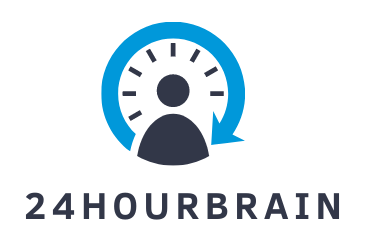Is it possible to improve concentration with sports?
Anyone who spends a significant amount of time at a desk throughout the day employs the prefrontal cortex, the brain’s thinking area. It is located in the front, right beyond the brow, and provides assistance during presentations, administration, or client meetings.
However, its capacity is restricted. Sport can assist because movement and coordination place a high demand on the brain. The activity is moved to the movement center, which relieves the thinking center. Thus, sports actually clear the mind.
We are not only more relaxed afterward, but also more focused and concentrated. However, it is critical that the sport be both difficult and enjoyable. You’ve gained nothing if you simply go for a walk or feel frustrated while jogging since you’re not sitting on the couch.
Exercise, according to research findings, is the foundation for a robust brain and excellent concentration.
I’m about to show you the tangible benefits of exercise and why the time investment is so small.
The six most compelling reasons for increasing physical activity and participation in sports
Despite the fact that scientists have been investigating the links between exercise and the brain for decades, not all of the impacts have been discovered and explained. Nonetheless, the list of advantages is already lengthy.
No.1 Your brain is regularly “rebooted.”

Exercise and sports functions as a brain recharge. What do you do when your computer hangs and nothing is running? Turn it off, wait a minute, and then restart. You can do the same for your mind.
Simply by engaging in some physical activity. The reason for the restart is that our brain has many separate parts. The motor cortex is in charge of movement, whereas the prefrontal cortex is in charge of logical thinking.
When you start exercising, your motor cortex takes over and your thinking center can shut down and relax. Your mind feels liberated after exercise.
The duration of the effect of this restart differs from person to person. Just give it a shot!
No. 2 Your brain improves its efficiency.
Scientists have often performed comparable comparisons: persons who exercise consistently versus others who exercise infrequently. Who has the more efficient brain?
The athletes, as you may have predicted, won.
The remarkable thing is that they not only win, but they win decisively. This dominance manifests itself in a variety of performance areas, including long-term memory, reaction time, problem solving, abstract thinking, and concentration.
Nr.3 Your hormone balance will improve in the long run.
Regular exercise is also beneficial in the long run. Scientists believe that the hormone dopamine in your body is broken down more slowly over time.
This drug is required and consumed, among other things, to maintain your attention.
No. 4 Your brain “develops.”
Does a little exercise make your brain bigger? It almost seems too good to be true.
In reality, it’s not quite that straightforward, but the trend is correct.
According to studies, exercise has the following effects on the brain: In the hippocampus, another area of the brain involved in thought, new nerve cells are created. They not only increase the brain’s power, but also its size.
No. 5 You become more stress tolerant.
Regular exercise improves not only your concentration and memory, but also your resilience to stress.
It all starts with the fact that exercise increases blood flow to the brain. The brain has been found to receive more oxygen.
This, in turn, increases the flow of oxygen and glucose to the cells. This considerably improves the nervous system’s efficiency. Walking alone can improve blood flow to the brain by about 20%, and moderate exercise can raise it by up to 30%. As a result, a variety of biological processes are initiated, leading to increased stress resistance.
No. 6 Sport is the foundation for increased willpower.
Exercise can serve as a springboard to a healthier and more productive existence. Several years ago, Australian researchers discovered an exciting effect:
If you can consistently gather the willpower to do the correct thing in one area of your life (for example, athletics), this success will permeate your entire behavior.
Your willpower will be strengthened, and you will be able to carry out your goals more successfully in other areas.
In concrete terms, if you exercise consistently, chances are you will study more effectively in the future, eat healthier, smoke less, and therefore lower stress factors. If you can gather enough willpower in just one aspect of your life, it will benefit many others.
Is it possible to improve concentration with sports? Yes!
As you can see, sports and physical exercise can improve concentration and activate practically all bodily elements associated to concentration. You must engage in sports on a regular basis to do this.
How much sport should there be, and which one should it be?
There should be no lack of drive after reading through all of the perks. It is now time to reach the correct conclusions. Here are several sports that can help you enhance your concentration:
WALK
Walking, according to experts, is one of the greatest types of cardio training because it is low-impact and requires no more than an hour every day to burn fat and gain the advantages. Walking for roughly 3 hours each week, according to one study, helps preserve your brain from age-related memory loss.
Walking also helps to prevent brain shrinkage and increases neuron growth, which improves memory.
AEROBIC EXERCISE AND STRETCHING
Stretching and mild activity like jogging or cycling have been connected to depression prevention. Researchers at Rutgers University discovered that conducting roughly 8 weeks of stretching and gentle exercise could reduce symptoms of depression by 30 to 50%, while the effects may be smaller in persons with low reward processing in their brains.
CARDIO EXERCISE
Running, swimming, or any other activity that raises your heart rate helps to reduce cognitive deterioration. A German study discovered that exercises that enhance oxygen delivery to the body (commonly known as cardio exercises) can increase gray matter and brain capacity, which is necessary for cognitive function. (Also see: HIIT workout in 30 minutes: The most effective at-home workout.)
STRENGTH WORKOUT
Another reason to continue doing weights at the gym. Lifting weights for 90 minutes can protect brain areas most vulnerable to disorders like Alzheimer’s. According to University of Sydney studies, 6 months of strength training can protect the brain against degradation. (Also interesting: trained upper arms: with these 9 exercises, you may quickly achieve your aim.)
HIGH-INTENSITY WORKOUT
Cycling, running, and sports such as soccer can improve brain function. A group of Swedish researchers discovered that moderate- to high-intensity exercise can increase memory, concentration, and learning ability, particularly in children. This continues for two hours after exercise.


